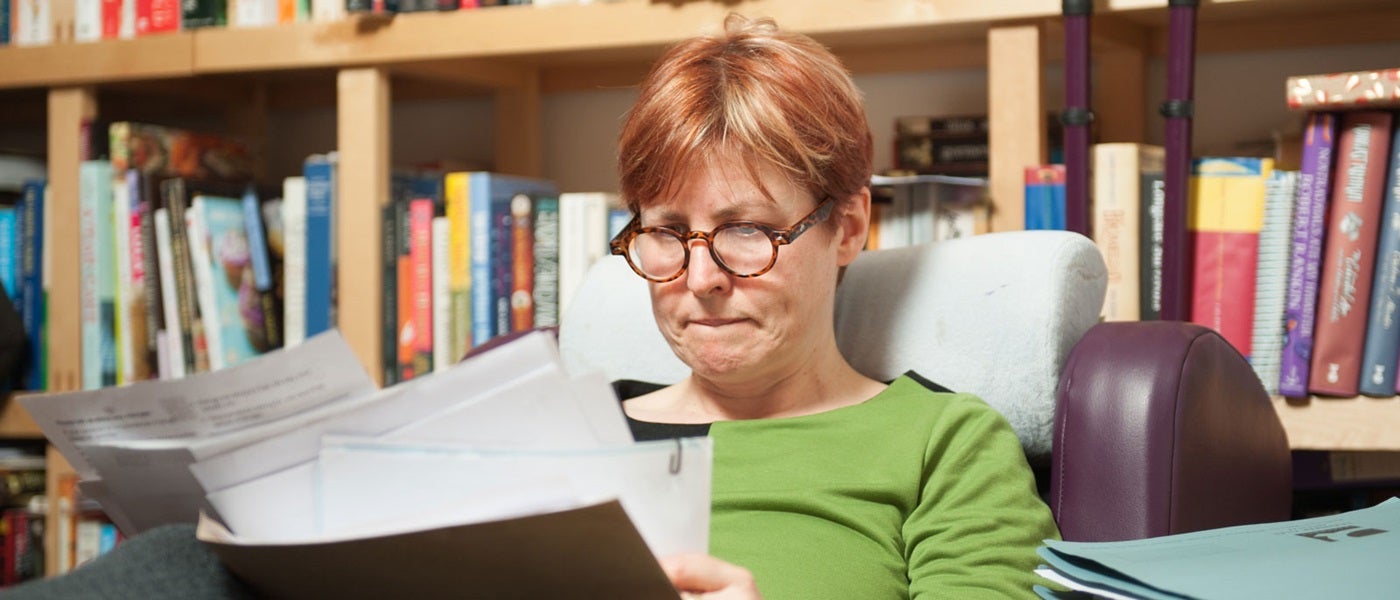- Home
- News and stories
- Tackling the price tag of disability
Tackling the price tag of disability
 19 February 2018
19 February 2018
Life costs more if you’re disabled.
Our new report, The Disability Price Tag, reveals that disabled people are forced to pay more for everyday essentials.
From expensive items of equipment or adapted cutlery, to higher energy bills and costly insurance premiums, disabled people face extra costs across all areas of life.
Read more about our research and how we can tackle the price tag of disability.
The financial penalty of disability
Four years ago we published research into disabled people’s extra costs and began campaigning for change.
Four years on, disabled people still face a substantial financial penalty.
Our latest research finds that disabled people face extra costs of £570 a month related to their impairment or condition. For one in 5 disabled people, these costs amount to over £1,000 a month.
This is on top of welfare payments such as Personal Independence Payment (PIP) designed to help meet these costs.
This disability price tag leaves disabled people with less money to spend on other things, and unable to afford the same standard of living as non-disabled people.
After housing costs have been met, almost half (49 per cent) of disabled people’s remaining income is spent on disability-related costs.
Even for disabled people in work, average monthly extra costs are £492. And across the country costs vary substantially, from an average of £482 in the East of England to an average of £632 in Scotland.
What are the types of extra costs disabled people face?
Disabled people we talk to tell us that they face extra costs across many areas of their lives. These costs broadly fall into 3 categories:
- Paying for specialised goods, like a wheelchair, a hoist or adapted cutlery
- Having to spend more on everyday things, like heating or items of clothing
- Paying over the odds for things, like insurance or accessible taxis
The extra costs of disability mean disabled people are less able to build financial resilience. They make it harder for disabled people to get a job, pay into savings and pensions, and participate fully in society.
What needs to change?
We cannot afford to ignore this problem.
Government, regulators and businesses all need to play a role in tackling the extra costs of disability.
We need action to ensure disabled people have the right support to help with extra costs. PIP helps with some of the additional costs of disability – but too often the PIP assessment fails to capture the extra costs many disabled people face.
We want to see an overhaul of the assessment so that disabled people get the support they need to help meet disability-related costs.
We also need to tackle the drivers of extra costs. We know disabled people are often underserved as consumers, leading to increased costs for essential goods and services like energy and insurance.
Today we are calling on businesses and regulators to set out what they will do to ensure disabled consumers are not paying over the odds.
What will we be doing next?
We will be reporting annually on disabled people’s extra costs to assess any changes over time. We will also be publishing research later on this year into the additional costs faced by families of disabled children.
What are your experiences of #ExtraCosts. Share your experiences in our extra costs discussion on the community.
 19 February 2018
19 February 2018





